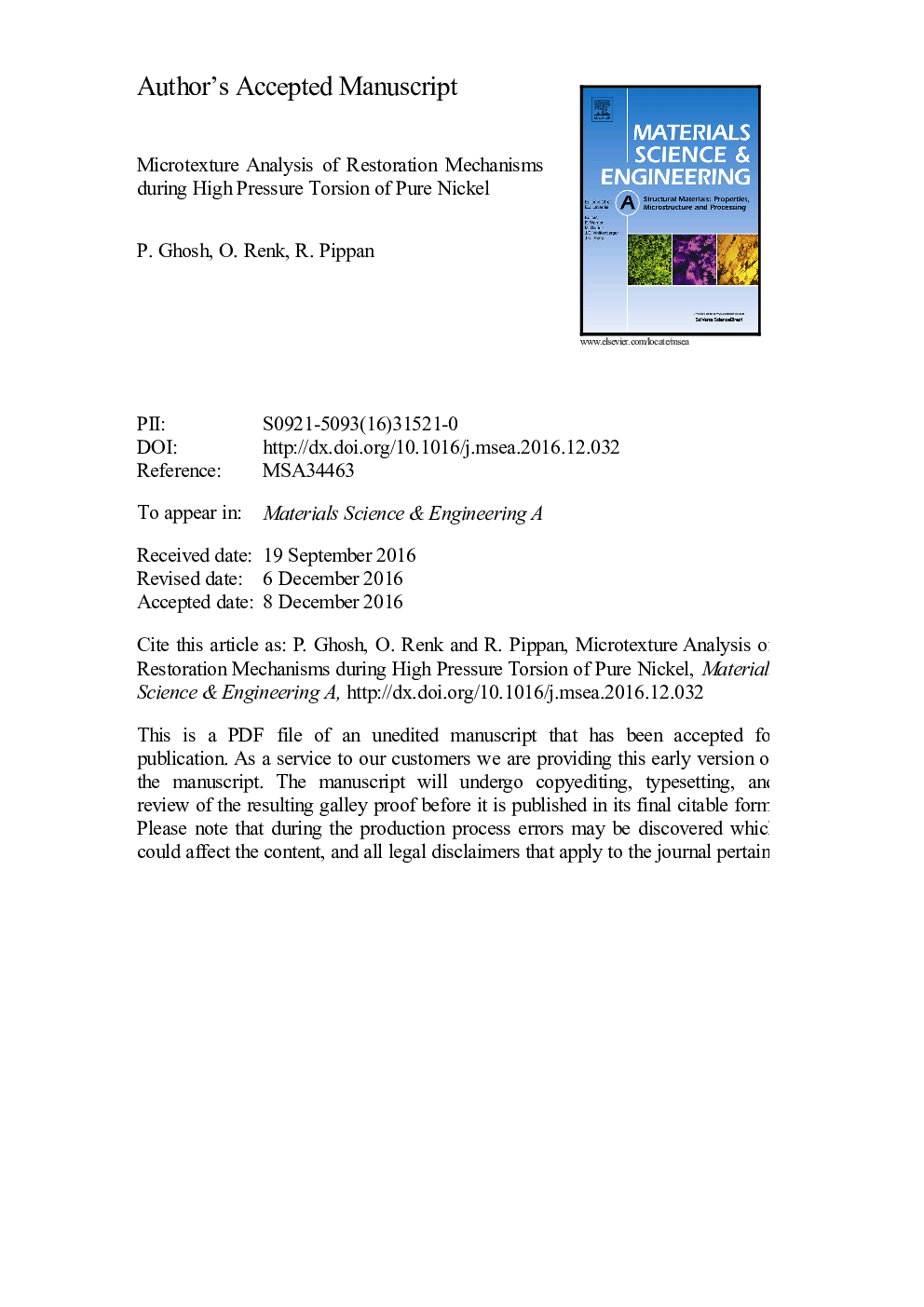| Article ID | Journal | Published Year | Pages | File Type |
|---|---|---|---|---|
| 5456293 | Materials Science and Engineering: A | 2017 | 23 Pages |
Abstract
The grain refinement in severe plastically deformed pure metals is limited to few 100Â nm and the saturated microstructure primarily depends on deformation temperature and impurities. In present study high pressure torsion (HPT) technique is used for understanding the mechanism of microstructure restoration processes at saturation state for 99.99% pure nickel between 77 and 673Â K. The saturation grain size increased with deformation temperature. Electron back scatter diffraction (EBSD) measurements along with microtexture evaluation show that the grain boundary (GB) misorientation distribution remains similar for all the temperatures; however, new texture components and special GB characteristics start to develop at higher temperatures. The differences in the GB migration characteristics and the resulting microtexture changes suggest that at low temperatures GB migration is facilitated by the variations in elastic strain energy density among neighboring grains; however, with increasing temperature thermally driven migration processes induced by plastic stored energy become important.
Related Topics
Physical Sciences and Engineering
Materials Science
Materials Science (General)
Authors
P. Ghosh, O. Renk, R. Pippan,
